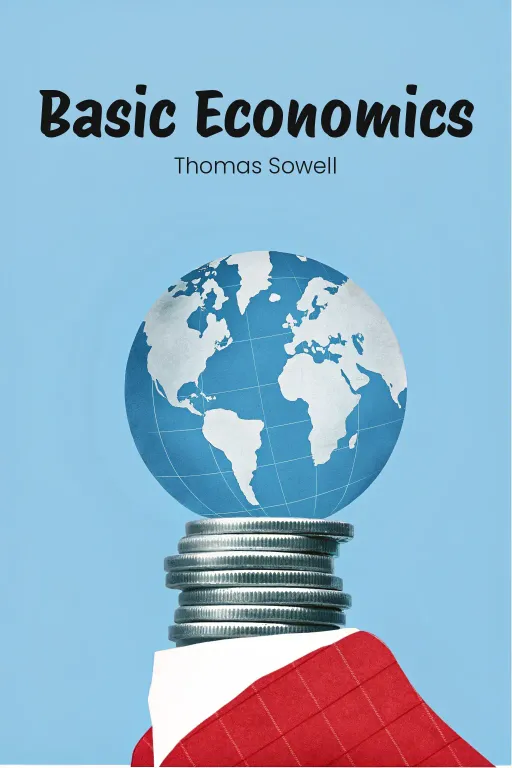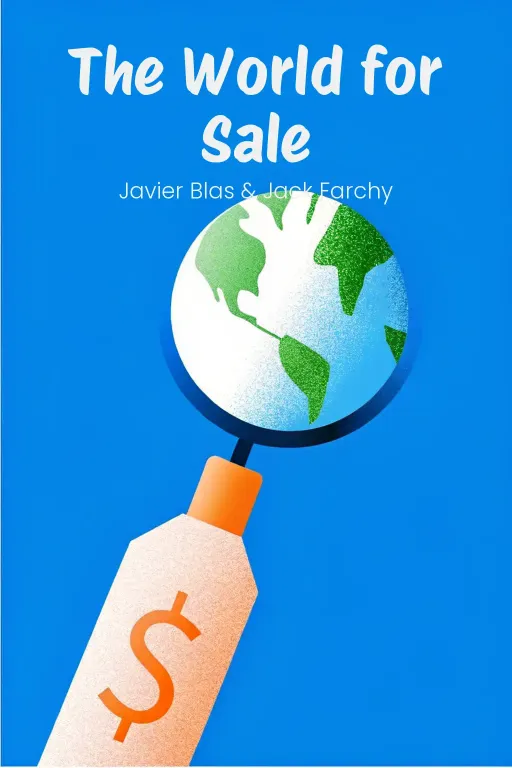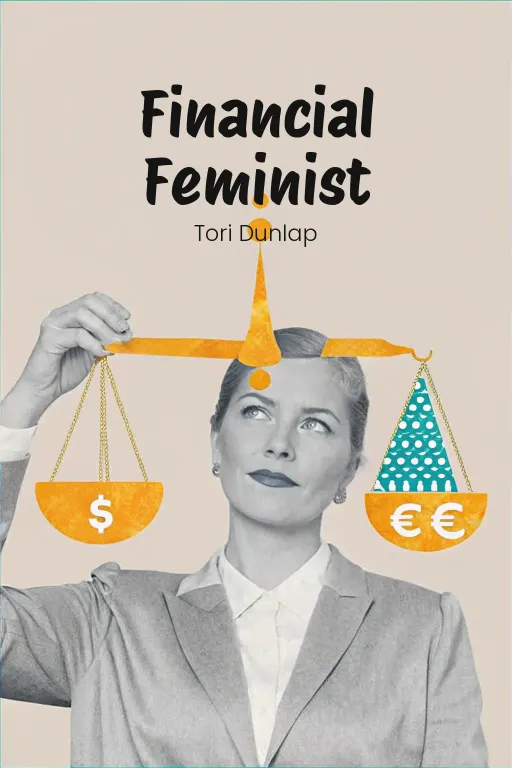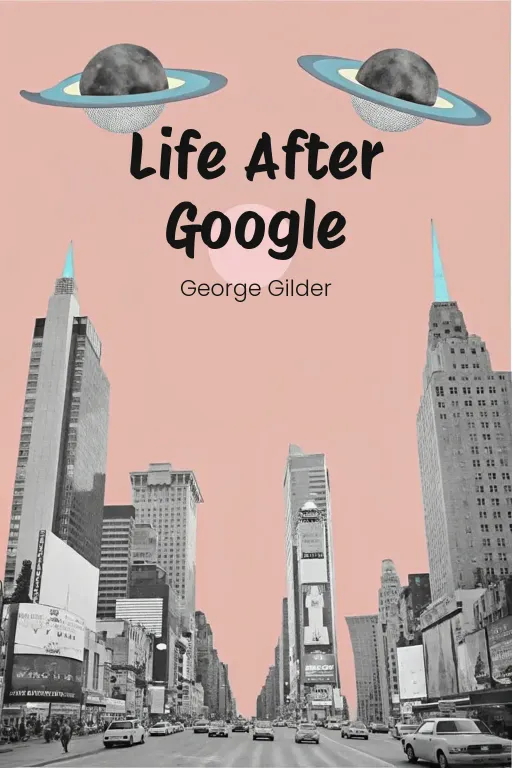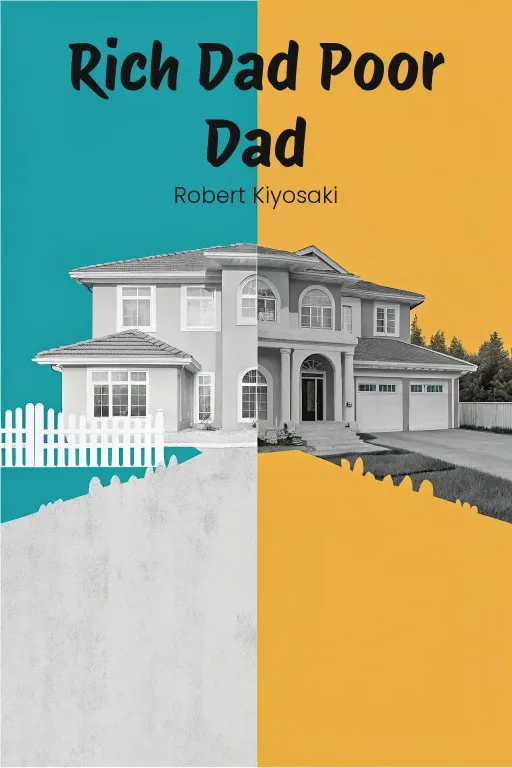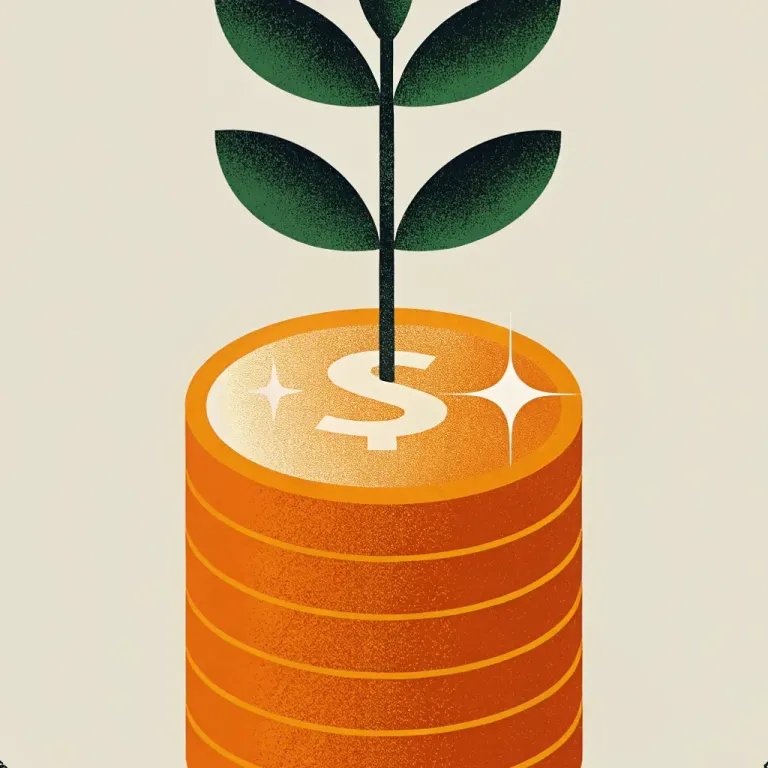
Beyond Stage One: Smarter Economic Choices
Podcast by Let's Talk Money with Sophia and Daniel
A Common Sense Guide to the Economy
Beyond Stage One: Smarter Economic Choices
Part 1
Daniel: Hey everyone, welcome back! Today we're jumping into economics, something that honestly touches everything we do. But hold on, this isn't going to be some boring lecture about GDP or whatever. Think about it: have you ever been excited about a new policy, you know, like cheaper housing or universal healthcare, only to find out later it's actually made things worse? What's up with that? Sophia: Right? It's like when politicians promise the moon. But it's like they are only thinking about short-term benefits, but reality always has a way of crashing the party. Why does this happen so often? Daniel: Exactly! That's what Thomas Sowell talks about in his book, “Applied Economics: Thinking Beyond Stage One”. His main point is that a lot of political decisions are based on quick, easy wins—what he calls "stage one" thinking—without really considering the long-term consequences. Sophia: So, he’s saying politicians are only thinking about today's headlines instead of tomorrow's problems? Daniel: Precisely. Sophia: Sounds like he's exposing how good intentions can totally backfire. So, what kind of examples are we talking about here? Daniel: Oh, there are tons. Sowell looks at everything from housing, labor, healthcare, immigration to even discrimination. He uses examples from all over the world and throughout history to show how these quick fixes can turn into long-term disasters. And, importantly, he also gives us ideas for policies that actually work better in the long run. Sophia: Okay, sounds good! What's our plan of attack today? Daniel: You bet! First, we'll talk about why economies get messed up when politics ignore basic economic principles. Then, we'll look at how well-intentioned policies—like rent control or healthcare reforms—can completely backfire. And finally, we'll talk about some solutions, including how countries like South Korea succeeded by embracing free markets instead of depending on handouts. Sophia: Okay, sounds like we're diving deep into some serious economic realities today. Let's see what happens when we look beyond just the surface.
Economic Principles vs. Political Short-Termism
Part 2
Daniel: Alright, Sophia, let's dive in . Sowell's whole argument rests on this incredibly simple, yet often overlooked, economic principle: actions have consequences . And I'm not just talking about the obvious, immediate ones, but the ripple effects that play out over time . He calls that "stage one thinking." Sophia: Right, so it's like, policymakers getting distracted by the shiny object, the quick win, while the real damage is being done behind the scenes . Why does this happen so often, though? Pure shortsightedness, or are there more… strategic reasons? Daniel: It's a cocktail of both, really . Political incentives are heavily skewed towards short-term thinking . Politicians need those quick, visible wins to get votes . Something they can point to and say, "I fixed this!" Take rent control, for example . Sounds great on paper, right? Protect tenants, cap those crazy rent increases . Everybody wins! But then… stage two kicks in. Sophia: Stage two… where the wheels start to wobble . This is where Sowell exposes the hidden downsides, I assume? Daniel: Exactly . Rent control often leads to consequences that completely undermine its original goals . Sowell cites cities like New York and San Francisco . Landlords can't raise rents to cover inflation or maintenance, so they stop investing in their properties . Buildings fall apart, the housing supply shrinks, and suddenly, that affordable housing becomes… well, not so desirable . Sophia: It's like trying to put out a small fire with gasoline! So, everyone sees the dilapidated buildings, the housing shortages… why does this stuff stick around? Daniel: Well, policies like rent control create these very visible beneficiaries in the short term—the tenants paying below-market rents . They become a powerful, vocal political group . What you don't see are the people who can't find housing, or the landlords who go bankrupt . It's a visibility problem that politicians exploit . They're playing for the applause now, not for a healthy economy later. Sophia: So, it’s the squeaky wheel gets the grease, basically? The renters shout the loudest, while the ones who lose out stay silent . It’s like cheering for a ship without considering the iceberg ahead. Daniel: Precisely . And Sowell adds another layer: the role of market prices as signals . Rent control messes with that signal . Normally, rising rents tell developers to build more housing because it's profitable . But when you cap prices, you distort that signal . Construction slows down, landlords stop maintaining, and the housing market just… seizes up. Sophia: Right, it’s like ignoring the warning signs until it’s too late . So, rent control is a mess . Got any other examples of this "stage one" thinking gone wrong? Daniel: Plenty . Let's talk about price controls in general . A truly dramatic example is Zimbabwe under Mugabe. They were battling hyperinflation, so the government slapped strict price caps on essential goods. Sophia: Right, so when your financial system is collapsing, you just slap a band-aid on it and hope for the best? Daniel: Pretty much . They thought artificially low prices would quell public anger . And for a moment, it seemed to work . Bread and fuel were cheap . But here's the punchline: producers couldn't make a profit, so they stopped producing! Massive shortages followed, shelves were empty, and a black market sprang up where prices were even higher than before. Sophia: So, you try to control prices to make people happy, and you end up with empty shelves and a thriving black market . Pure chaos! Did they not see this coming? Daniel: That's the point Sowell keeps making! Policymakers ignore historical lessons because those "stage one" solutions get them immediate praise . History is sacrificed for a quick win. Sophia: Okay, playing devil's advocate here, couldn't you argue that price controls, or even rent caps, are sometimes necessary? Like during a war or a major recession? Daniel: That's a fair point . Sowell doesn't completely dismiss emergency measures . But he argues that policymakers tend to forget they're supposed to be temporary! Take Nixon's wage and price controls in the '70s . They were supposed to stabilize inflation . Initially, prices did stop climbing . But businesses were struggling with frozen wages while their costs were going up . When the controls were lifted, inflation came back with a vengeance. Sophia: It's like patching a dam with bubblegum and hoping it holds during the rainy season That seems shortsighted . So, Daniel, we've covered rent control and price freezes—policies that were supposed to be saviors but ended up causing chaos . How does Sowell suggest we break free from this cycle of “stage-one” disasters? Daniel: That, Sophia, is where Sowell's multi-stage thinking comes in . He advocates for economic literacy . Educating voters and policymakers about how consequences ripple through the system . It's not just cost-benefit analysis, it's understanding history . By studying past failures, like Zimbabwe's price caps or New York's rent regulations, we can anticipate long-term outcomes instead of just reacting to short-term pressures. Sophia: So, the solution isn’t some magic bullet; it's just… education, analysis, and critical thinking . All the unglamorous stuff . I can see why that’s a tough sell . People want instant results, not a lesson in economics. Daniel: True . But as Sowell might say, the cost of ignoring this is far greater—broken markets, shortages, and increased inequality . That's the real price of "stage one" thinking, isn't it?
Real-World Consequences of Economic Policies
Part 3
Daniel: Okay, so we’ve talked about how short-term political thinking can mess with economics. Now, let’s get into how these policies actually affect people's lives and different industries. What Sowell does so well is take these abstract ideas and show us how they play out in the real world, you know? It's about connecting the dots, seeing cause and effect, and understanding why foresight in policy-making isn't just a nice-to-have, but a must-have. Sophia: Right, Daniel, let’s dive into some real-world examples. I'm talking about those cases where good intentions go completely off the rails. I mean, are we going to start with the classic example of unintended consequences? Daniel: You bet—rent control. It sounds good, right? Keep housing affordable, but it often does the opposite, actually. New York City is a perfect example. Decades of rent control, initially meant to protect tenants, ended up with landlords cutting corners because they couldn’t raise prices for maintenance, and some even abandoned their properties, can you believe it? Sophia: So, those buildings with that, uh, “unique charm” aren’t just old, they're also suffering from decades of deferred plumbing maintenance, huh? Daniel: Exactly! And it's the tenants who pay the price. Studies have shown that rent-controlled buildings often have worse living conditions—think rotting floors, broken radiators, things like that. You'd think it benefits the most vulnerable, but a study in San Francisco showed nearly half of the units were occupied by single, middle-class or even affluent people. Meanwhile, families or lower-income folks can’t find housing at all! Sophia: So, these apartments are like rare collectibles—hoarded by those who got in early, while everyone else is stuck paying a premium for standard rentals. How can a policy designed to help, end up hurting the disadvantaged even more? Daniel: It messes up the market signals. Normally, rising rents tell developers, "Build more housing here!" But with rent caps, that signal is gone. So, developers build luxury condos or sell units, because rentals aren’t profitable anymore. Sophia: So, instead of fixing the shortage, it actually makes it worse. And there's also the whole black market thing, right? I've heard stories about people paying bribes just to get a rent-controlled lease. Daniel: Absolutely. Once a policy distorts incentives, it creates problems everywhere. Landlords go broke, tenants fight for a small number of rundown units, and the housing crisis deepens. Sowell would argue that the real solution is to increase supply—loosen zoning laws, speed up construction approvals, and let the market respond naturally. Sophia: “Streamlining permits” isn’t exactly a winning campaign slogan, is it? Politicians want applause, not necessarily what's practical. Speaking of applause, healthcare's next, isn't it? Daniel: It is. Sowell says third-party payment systems in healthcare—where insurers or governments pay—promise affordability but actually encourage inefficiency and overuse. Take the U.S., for example. Patients with insurance often go for the pricier treatments because they aren’t paying the full amount. Sophia: Right, so instead of physical therapy for that knee, it’s straight to expensive MRIs or surgery, because, "Hey, insurance covers it." That doesn’t sound very sustainable. Daniel: No, it's not. Healthcare providers are also more likely to suggest those pricier options since they get paid more. And then there’s defensive medicine, you know? Doctors, worried about lawsuits, order extra tests and treatments, even when they're not “really” necessary. Sophia: So, the system gets bloated with waste. Does the government step in to make things better? Daniel: Not “really”, because government involvement comes with its own issues. Emergency rooms, for example, are legally required to treat everyone, no matter their ability to pay. While that helps people in urgent situations, it also means ERs get filled with non-emergency patients who can't afford regular care or don't want to bother with appointments. Sophia: Which clogs up the system for those who genuinely need urgent help. A lose-lose situation. So, what's Sowell's solution? Daniel: He suggests reevaluating the role of third-party payments. He thinks making patients more responsible for a portion of their healthcare costs—through high-deductible plans, for example—could reduce overuse and encourage price transparency between providers and consumers. Sophia: That makes sense. But I imagine shifting that financial responsibility back to patients wouldn’t be a popular move. Nobody wants to hear, "You’ll pay more upfront, but the system will be better in the long run." Daniel: Exactly. That’s the constant challenge—short-term political gain versus long-term sustainable reform. And that's especially true with immigration policies, which is our next topic. Sophia: Immigration, huh? Sounds like a can of worms. Let me guess, Sowell's going to use some historical examples to show us how poorly managed immigration leads to economic friction? Daniel: You got it. Take the Irish immigration wave into 19th-century Boston. During the potato famine, thousands of people came to the U.S. And, they played a huge role in building America’s infrastructure. However, instead of being appreciated, they were discriminated against and stuck in the lowest-paying, toughest jobs. Sophia: So, the people who literally built the tracks for economic growth couldn’t even afford a ticket on the train themselves. Classic. Daniel: It’s a common theme with immigration. Immigrants often do work that locals won’t or can’t do. But they still face biases that prevent them from fully integrating or advancing. Which results in cycles of poverty and alienation, even though they contribute to the economy. Sophia: And modern parallels? I’m assuming that not a lot has changed? Daniel: Not “really”. Highly skilled immigrants today have to deal with things like non-transferable credentials or visa issues, forcing them into lower-skilled jobs. Meanwhile, people often focus on how low-skilled immigrants "take jobs" from native workers, even though the data actually shows they usually fill gaps in the labor markets. Sophia: Sounds like tunnel vision. Focus on "cheap labor flooding in" without looking at the bigger picture—like how immigrants create demand as consumers, driving markets forward. Daniel: Exactly. Whether it’s immigration, healthcare, or housing, Sowell’s point is consistent: short-term solutions that ignore the wider consequences not only fail to solve the problems but often make them worse. Economics doesn't reward quick fixes. It punishes them.
Pathways to Sustainable Development
Part 4
Daniel: So, beyond just individual policies, these examples really make you think about the need for systemic solutions for sustainable economic development. Today, let's zoom out and discuss what Sowell says about the bigger picture – how nations, over time, develop their strategies for long-term economic growth. This isn't so much about nitpicking policies, but more about grasping the frameworks and foundations that build sustainable economies. Sophia: Okay, so we're moving from daily problem-solving to the grand strategy level, right? I'm guessing Sowell links past triumphs to present-day lessons? Daniel: Precisely! He argues that sustainable development is a complex interaction of things: the role of private capital, institutional systems like property rights, geographical realities, and even cultural factors. Let's kick off with one of his key points – why heavily relying on foreign aid often falls short of driving real development. Sophia: Ugh, foreign aid. It always sounds so noble, doesn't it? Like rich countries swooping in to rescue struggling economies with loads of cash and good intentions. So, what's Sowell's stance – heroic savior or misguided charity? Daniel: A little of both, but mostly the latter. Sowell uses South Korea as a really compelling case study. Back in 1960, South Korea was incredibly poor. Its per capita income was even lower than Haiti's, and it was heavily reliant on foreign aid, especially from the US. Back then, aid looked like a lifeline, but it didn't fix their stagnation. Sophia: Hmm, I'm guessing something changed—and I'm betting it wasn't just giving them more money. What was the turning point? Daniel: Leadership and policy, basically. In the early 1960s, South Korea under Park Chung-hee deliberately shifted gears. They decreased their reliance on foreign aid and welcomed private capital and global markets. Park's government put in place export-oriented policies, incentivizing manufacturing and teaming up with private businesses to fuel growth. Industries started booming – steel, shipbuilding, and eventually electronics – turning South Korea into an economic powerhouse by the 1980s. Sophia: So, instead of just getting handouts, they embraced competitive markets and developed self-sufficient industries. It's the classic "teach a man to fish" scenario, right? Daniel: Exactly! And Sowell would argue that relying on aid often acts like economic quicksand – it feels stabilizing at first, but it keeps nations stuck in dependency. Compare South Korea's path to regions still heavily reliant on aid. Those areas often see stalled growth because aid rarely tackles the fundamental issues like governance, infrastructure, or market development. Sophia: So it is like giving someone a band-aid for a broken bone. It might hold things together for a little while, but they're not really going anywhere until the root cause is addressed, right? Okay, so aid is not a long-term solution. What comes next -- strong institutions? Daniel: Spot on again. Sowell stresses the critical role of strong institutions, especially property rights. Let's look at Peru. Millions of homes in Peru are unregistered. This means a huge number of people who’ve built homes over years, even decades, lack legal proof of ownership. Sophia: Wait, so people own homes... but not “really” own them? How does that even work? Daniel: Well, the process to legally register your property in Peru is so incredibly bureaucratic that most people just don't bother. It can take up to five years to get a title. So, people end up living on what's technically unregistered land. And without a title, they don't have a legal claim to their property. Sophia: Meaning no collateral, right? I see where this is going—they can’t use their property to secure loans or grow their businesses, got it. Daniel: Precisely. Those unregistered properties account for what economists call “dead capital.” The assets exist—homes, land, businesses—but people can’t leverage them into the economy. Ironically, the total value of unregistered property far outweighs all the foreign investment Peru has ever received. Sowell points out how institutional roadblocks like this lack of accessible property rights, trap developing economies in poverty. Sophia: It's kind of like having treasure locked in a vault with no key. You can see what it could do, but without access, it's basically useless. So, what does Sowell suggest here—streamlining the process? Making registration more inclusive? Daniel: Yes, both. Countries with effective property systems make it simple for people to formalize ownership. This not only empowers individuals but also sparks economic growth. Property rights offer stability, encourage investment, and create paths for upward mobility. Sophia: Alright, so private capital drives growth, and strong institutions provide stable foundations. But where do natural barriers, like geography, come into play? Daniel: Geography creates unique challenges and opportunities. Take Africa, for example. Sowell compares Sub-Saharan Africa's limited navigable waterways to Europe's trade-friendly rivers and harbors. Geography really shaped Europe's historical economic integration, encouraging urbanization and trade. Africa, on the other hand, has fewer navigable rivers, and many are blocked by rapids. Sophia: So Africa drew the short straw—shallow rivers and logistical nightmares, got it. That must make infrastructure development incredibly difficult. Daniel: Exactly. The lack of natural trade routes increases the cost of overland transport, isolating rural areas and driving up prices for basic goods. However, Sowell also points out that Africa has adapted through technological innovation. The rapid expansion of mobile telecommunications, for example, is helping bridge geographic gaps by connecting remote regions to urban markets. Sophia: So technology is sort of rewriting the map—closing the gaps that infrastructure couldn’t. Resourceful. Where do human and cultural factors fit into Sowell’s model? Daniel: Human and cultural factors are really the game changers. Sowell highlights how cultural flexibility and human skills can really boost or undermine the impact of economic policies. Take Nigeria during British colonial rule. The Ibos, a skilled ethnic group from the south, moved to northern Nigeria, which was underdeveloped at the time. Although tensions arose, their entrepreneurial spirit sparked trade and industry in the north, driving growth despite cultural divides. Sophia: Sounds like a mix of resilience and opportunity. They saw a demand and used their skills to meet it. It's interesting that it wasn't some big government thing – it was people seeing gaps and filling them. Daniel: Right! Effective governance, in that case, simply meant allowing free movement and ensuring security. Sowell emphasizes that economic systems should empower people—not try to micromanage every aspect of their contributions. Sophia: So there's the recipe: private capital, strong institutions, solutions for geographic barriers, and cultural inclusion. It's a far cry from a quick fix, isn't it? Daniel: It is—and that's Sowell's whole point. Short-term policies might grab headlines, but sustainable economic development depends on systemic thinking, historical context, and, most importantly, empowering individuals to create their own opportunities.
Conclusion
Part 5
Daniel: So, Sophia, today we dove deep into Thomas Sowell's thinking... we started with how political motivations can often run counter to solid economic sense. Then we looked at the knock-on effects of things like rent control and price caps. And finally, we explored what really builds lasting progress: private investment, robust institutions, and unlocking human potential. Sophia: Yeah, and what really hit home for me was how often these quick, easy fixes just end up causing more problems down the line. Rent control leads to housing shortages, third-party healthcare payments create inefficiencies, price caps fuel black markets... it's like trying to fix a wobbly table by just leaning on it harder. Daniel: Precisely! It's all about planting the seeds for lasting change, rather than just chasing immediate praise. Sowell reminds us that good economics means resisting those tempting, quick solutions and focusing on the long-term. Policies should be judged not just by how they appear now, but by the waves they create in the future. Sophia: Okay, so here’s the challenge for our listeners: Next time you hear about some “solution” that sounds too good to be true, think past the initial announcement. Ask yourself: What are the second-order effects here? Who benefits? Who might lose out? And are we actually solving the problem, or just slapping a coat of paint on it? Daniel: Because, as Sowell might say, the difference between success and failure isn't just about good intentions of a policy, but it is understanding its full impact over time. Thanks for tuning in today, and remember – always think beyond stage one!
